

Created and developed by CAM-CCBC – Center for Arbitration and Mediation in collaboration with AMCHAM Brasil, CAMARB and CIESP/FIESP.
WHY SÃO PAULO?
São Paulo is the largest city in the Americas, one of the most dynamic economy in the Southern Hemisphere. It is the leading city in Foreign Direct Investment in Latin America and it is accounting for 31% of Brazil’s GDP.
São Paulo is the financial and business hub not only for Brazil but for the Latin American region in general. It has developed several clusters, such as financial services, information technology, among others.
Several factors contribute to São Paulo’s dynamic economy: 12.1 million inhabitants, direct flights from many cities (New York, Chicago, Miami, London, Johannesburg, Frankfurt, etc.), high standard universities and extremely qualified research institutes. The city’s infrastructure is comprised of 1,384 bus lines, 67 subway stations, 92 train stations and 42,000 hotel rooms. Apart from all this, São Paulo has a vibrant cultural life, with 158 museums, 115 cultural centers and 109 parks and green areas.
When it comes to Arbitration, São Paulo hosts the most important arbitral institutions in the country. It is the seat of most domestic arbitration proceedings and has several specialized law firms prepared to assist parties . As it will be further developed, São Paulo also has specialized and friendly judicial courts.
WHY SÃO PAULO?
São Paulo is the largest city in the Americas, one of the most dynamic economy in the Southern Hemisphere. It is the leading city in Foreign Direct Investment in Latin America and it is accounting for 31% of Brazil’s GDP.
São Paulo is the financial and business hub not only for Brazil but for the Latin American region in general. It has developed several clusters, such as financial services, information technology, among others.
Several factors contribute to São Paulo’s dynamic economy: 12.1 million inhabitants, direct flights from many cities (New York, Chicago, Miami, London, Johannesburg, Frankfurt, etc.), high standard universities and extremely qualified research institutes. The city’s infrastructure is comprised of 1,384 bus lines, 67 subway stations, 92 train stations and 42,000 hotel rooms. Apart from all this, São Paulo has a vibrant cultural life, with 158 museums, 115 cultural centers and 109 parks and green areas.
When it comes to Arbitration, São Paulo hosts the most important arbitral institutions in the country. It is the seat of most domestic arbitration proceedings and has several specialized law firms prepared to assist parties . As it will be further developed, São Paulo also has specialized and friendly judicial courts.
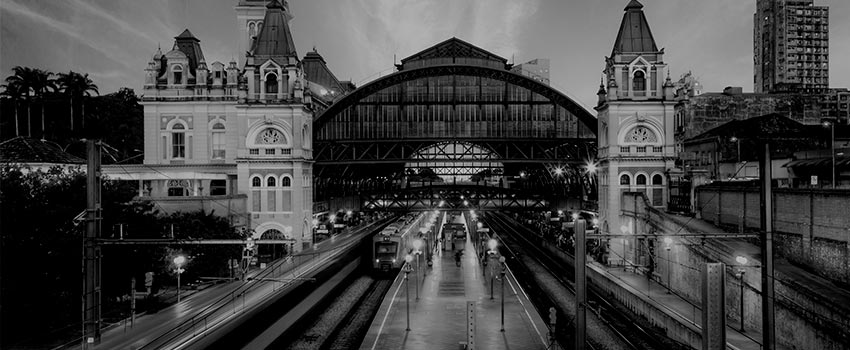

42,000
Hotel rooms

109
Parks and
green areas

158
Museums

115
Cultural centers

2,514
Bank branches

92
Trainstations

67
Subway stations

3
Airports

12.1
Million
inhabitants

31%
of the country’s GDP

48
Honorary consulates

44
Chambers of commerce

1,384
Bus lines

50
General consulates

Credits:
ARBITRATION IN BRAZIL
The Brazilian Arbitration Act (BAA), enacted in 1996, with amendments adopted in 2015, is generally based on the UNCITRAL Model Law. Even though Brazil has not adopted the Model Law, its influence may be perceived in its very foundation, shaping the formal and substantive requirements of arbitration agreements and empowering arbitrators to rule on its own jurisdiction (competence-competence).
According to the BAA, there are no distinctions between domestic and international arbitrations. Also, pursuant to the BAA, arbitral awards rendered in Brazil shall be deemed domestic and awards rendered abroad shall be deemed foreign.
Brazil has ratified the New York Convention without any reservations and it is a party to other multilateral treaties, such as the Geneva Protocol on Arbitration Clauses and the United Nations Convention on Contracts for the International Sale of Goods.
With a favorable legal framework and arbitration-friendly Courts, Brazil saw a significant increase in the use of domestic and international arbitration in the past 20 years. As a result, parties in commercial contracts, especially those involving complex technical issues in Brazil, usually refer their disputes to arbitration for its celerity, flexibility, cost-effectiveness and the technical expertise of arbitrators.
BRAZILIAN LEGISLATION
- As a signatory to the New York Convention, Brazilian arbitration awards are enforceable in the 150+ countries that are also signatories to this Convention. (New York, 1958).
- Brazil is a signatory to the United Nations Convention on Contracts for the International Sale of Goods – CISG (Vienna, 1980).
- The Brazilian Arbitration Act is a modern law based on the UNCITRAL Model Law Brazil, 1996 and 2015).
- Government owned companies and Brazilian State entities have recently secured the favorable legal framework to engage in arbitration (Brazil, 1996 and 2015).
FRIENDLY COURTS

After a period of coming to age, courts in Brazil, and especially those located in São Paulo, have adopted a very favorable stance towards arbitration. The structure of courts has been overhauled to better cater for arbitration matters. The courts in São Paulo have set up divisions with special competence over lawsuits related with arbitrations. In the city of São Paulo, there are two Courts specialized in arbitration matters, the First and Second Courts of Corporate and Arbitration related Disputes. This ensures that judges deal with all lawsuits relating to arbitration.
This is consistent with the evolution of statutes. The Brazilian Arbitration Act (“BAA”) was revamped in 2015 to include, among other things, two instruments that facilitate the collaboration between the courts of law and arbitral tribunals. Brazilian courts remain competent to render urgent relief before the arbitration panel is constituted. Yet, the BAA dictates that, once the arbitration tribunal is set up, the arbitrators are solely empowered to maintain, modify or even overturn the decision previously rendered by the courts of law. Courts in São Paulo consistently recognize and preserve the arbitrator’s competence to decide upon interim relief as well as the merits of the dispute.
Further, the BAA offers a device named “arbitral letter,” which organizes the exchange of requests for collaboration between arbitration tribunals and state courts,
ensuring that the arbitrators may rely on the courts to support the conduct of arbitration proceedings. The courts in São Paulo constantly recognize the arbitral letter as authoritative.
When it comes to arbitration matters, the quality of the judgments rendered by São Paulo courts is also worthy of note. There have been only exceptional cases where courts meddled with the conduct of arbitration proceedings and the prevailing trend is that judges refrain from interfering in matters referred to arbitration. Generally speaking, the courts in São Paulo are well equipped to support arbitration . Practically all judicial proceedings filed today are electronically lodged and managed, expediting lawsuits. The state of São Paulo has also set up 150 public centers that manage and promote amicable dispute resolution methods, raising awareness from local judges and from the society at large.
See, for instance, São Paulo State Court of Appeals, Interim Appeal No. 2204673-33.2014.8.26.000, judged on November 22, 2016; Interim Appeal No. 2114289-24.2014.8.26.0000, judged on August 13, 2014; Interim Appeal No. 2105459-64.2017.8.26.0000, judged on August 23, 2017. See, for instance, São Paulo State Court of Appeals, Interim Appeal No. 2025056-45.2016.8.26.0000, judged on June 15, 2016. Those are the Judicial Centers for the Amicable Resolution of Disputes and for Citizenship – CEJUSC.
FRIENDLY COURTS
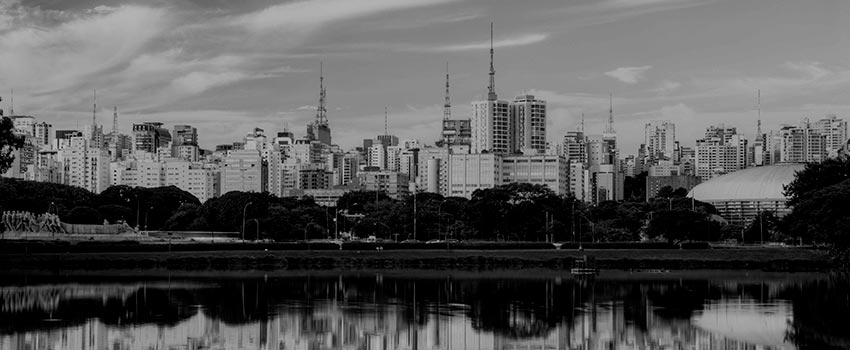
After a period of coming to age, courts in Brazil, and especially those located in São Paulo, have adopted a very favorable stance towards arbitration. The structure of courts has been overhauled to better cater for arbitration matters. The courts in São Paulo have set up divisions with special competence over lawsuits related with arbitrations. In the city of São Paulo, there are two Courts specialized in arbitration matters, the First and Second Courts of Corporate and Arbitration related Disputes. This ensures that judges deal with all lawsuits relating to arbitration.
This is consistent with the evolution of statutes. The Brazilian Arbitration Act (“BAA”) was revamped in 2015 to include, among other things, two instruments that facilitate the collaboration between the courts of law and arbitral tribunals. Brazilian courts remain competent to render urgent relief before the arbitration panel is constituted. Yet, the BAA dictates that, once the arbitration tribunal is set up, the arbitrators are solely empowered to maintain, modify or even overturn the decision previously rendered by the courts of law. Courts in São Paulo consistently recognize and preserve the arbitrator’s competence to decide upon interim relief as well as the merits of the dispute.
Further, the BAA offers a device named “arbitral letter,” which organizes the exchange of requests for collaboration between arbitration tribunals and state courts, ensuring that the arbitrators may rely on the courts to support the conduct of arbitration proceedings. The courts in São Paulo constantly recognize the arbitral letter as authoritative.
When it comes to arbitration matters, the quality of the judgments rendered by São Paulo courts is also worthy of note. There have been only exceptional cases where courts meddled with the conduct of arbitration proceedings and the prevailing trend is that judges refrain from interfering in matters referred to arbitration. Generally speaking, the courts in São Paulo are well equipped to support arbitration . Practically all judicial proceedings filed today are electronically lodged and managed, expediting lawsuits. The state of São Paulo has also set up 150 public centers that manage and promote amicable dispute resolution methods, raising awareness from local judges and from the society at large.
See, for instance, São Paulo State Court of Appeals, Interim Appeal No. 2204673-33.2014.8.26.000, judged on November 22, 2016; Interim Appeal No. 2114289-24.2014.8.26.0000, judged on August 13, 2014; Interim Appeal No. 2105459-64.2017.8.26.0000, judged on August 23, 2017. See, for instance, São Paulo State Court of Appeals, Interim Appeal No. 2025056-45.2016.8.26.0000, judged on June 15, 2016. Those are the Judicial Centers for the Amicable Resolution of Disputes and for Citizenship – CEJUSC.

FRIENDLY SEAT IN BRAZIL
FRIENDLY SEAT IN BRAZIL

16 months
LANGUAGES


16 months
LANGUAGES

BRAZILIAN ARBITRATION COMMITTE

The Brazilian Arbitration Committee – CBAr is a nonprofit association, whose main purpose is to disseminate Arbitration and other ADRs in Brazil. CBAr was founded in 2001 by a group of young arbitration practitioners, who envisioned the future of arbitration in Brazil. Nowadays, the institution counts with approximately 700 associates worldwide, between scholars, practitioners, law firms, arbitral institutions, students and other professionals.
CBAr promotes a wide range of academic projects, such as: Study Groups on specific areas of interest of the arbitral community (arbitration and public administration, arbitration and corporate law, arbitration and tax law, arbitration and agribusiness, arbitration and construction/infrastructure projects, among others); the quarterly publication of the Brazilian Arbitration Journal (Revista Brasileira de Arbitragem) by Wolters Kluwer; and the establishment of libraries specialized in arbitration throughout Brazil. CBAr provides an easily accessible database, containing relevant information, legislation and an authorized copy of master’s and doctoral dissertations related to arbitration and mediation. The institution also promoted the edition of short videos aimed at disseminating the culture of arbitration, with the participation of renowned arbitration practitioners and scholars, available at YouTube channel. CBAr annually promotes an International Arbitration Conference, which conveys a productive and enjoyable academic debate on relevant issues in the field. The 16th edition of the Conference was dedicated to discuss “Due process in arbitration” and took place from 24th to 26th September in Gramado (Rio Grande do Sul), gathering representatives of the arbitral community from several countries. In order to provide a friendly environment for the consolidation of the use of arbitration by public entities, CBAr has been in constant contact with representatives of the public sector and has recently executed an institutional agreement with the Attorneys’ Office of the State of São Paulo. CBAr also plays an important role in relation to the legislative treatment of arbitration, monitoring the presentation of bills of laws within the parliament, that have any point of contact with arbitration and mediation, in order to prevent the misuse of such instruments. Hence, CBAr is considered today the most prestigious academic institution devoted to the study and dissemination of arbitration in Brazil, offering to its associates several tools and opportunities to learn and to develop their career within the arbitration field. More information is available at www.cbar.org.br
Flávia Bittar Neves, President, 2015-2018.
BRAZILIAN ARBITRATION COMMITTE

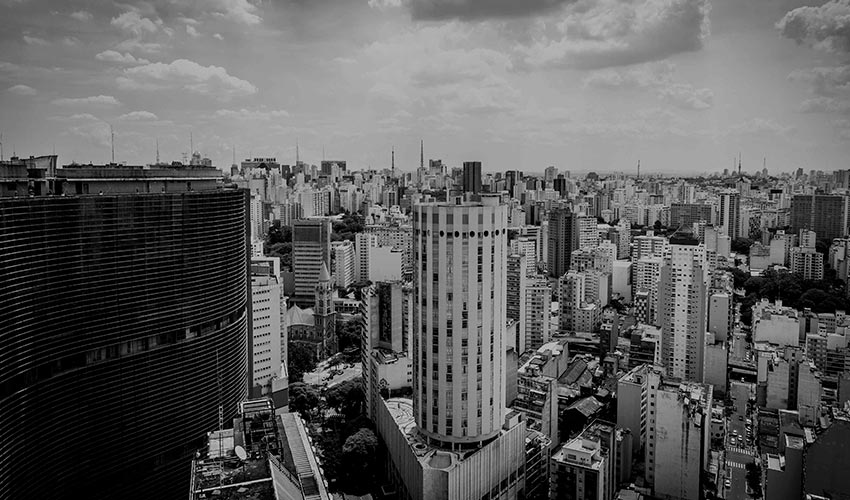
The Brazilian Arbitration Committee – CBAr is a nonprofit association, whose main purpose is to disseminate Arbitration and other ADRs in Brazil. CBAr was founded in 2001 by a group of young arbitration practitioners, who envisioned the future of arbitration in Brazil. Nowadays, the institution counts with approximately 700 associates worldwide, between scholars, practitioners, law firms, arbitral institutions, students and other professionals.
CBAr promotes a wide range of academic projects, such as: Study Groups on specific areas of interest of the arbitral community (arbitration and public administration, arbitration and corporate law, arbitration and tax law, arbitration and agribusiness, arbitration and construction/infrastructure projects, among others); the quarterly publication of the Brazilian Arbitration Journal (Revista Brasileira de Arbitragem) by Wolters Kluwer; and the establishment of libraries specialized in arbitration throughout Brazil. CBAr provides an easily accessible database, containing relevant information, legislation and an authorized copy of master’s and doctoral dissertations related to arbitration and mediation. The institution also promoted the edition of short videos aimed at disseminating the culture of arbitration, with the participation of renowned arbitration practitioners and scholars, available at YouTube channel. CBAr annually promotes an International Arbitration Conference, which conveys a productive and enjoyable academic debate on relevant issues in the field. The 16th edition of the Conference was dedicated to discuss “Due process in arbitration” and took place from 24th to 26th September in Gramado (Rio Grande do Sul), gathering representatives of the arbitral community from several countries. In order to provide a friendly environment for the consolidation of the use of arbitration by public entities, CBAr has been in constant contact with representatives of the public sector and has recently executed an institutional agreement with the Attorneys’ Office of the State of São Paulo. CBAr also plays an important role in relation to the legislative treatment of arbitration, monitoring the presentation of bills of laws within the parliament, that have any point of contact with arbitration and mediation, in order to prevent the misuse of such instruments. Hence, CBAr is considered today the most prestigious academic institution devoted to the study and dissemination of arbitration in Brazil, offering to its associates several tools and opportunities to learn and to develop their career within the arbitration field. More information is available at www.cbar.org.br
Flávia Bittar Neves, President, 2015-2018.
TESTEMONIAL
The four most renowned Arbitral Institutions in Brazil have joined forces to showcase Arbitration in São Paulo. São Paulo, one of the most dynamic cities in the world, is also the ideal arbitration seat in Latin America. It has already proven to be a safe and strategically-wise choice for dispute resolution, forged in a fast-growing arbitration market.
• Modern legislative framework for arbitration
• Recognized dispute resolution centers
• State-of-the-art facilities
• Dynamic economy
• Friendly Courts
• Consolidated arbitral community

Carlos Suplicy de Figueiredo Forbes

Carolina da Rocha Morandi

Augusto Tolentino
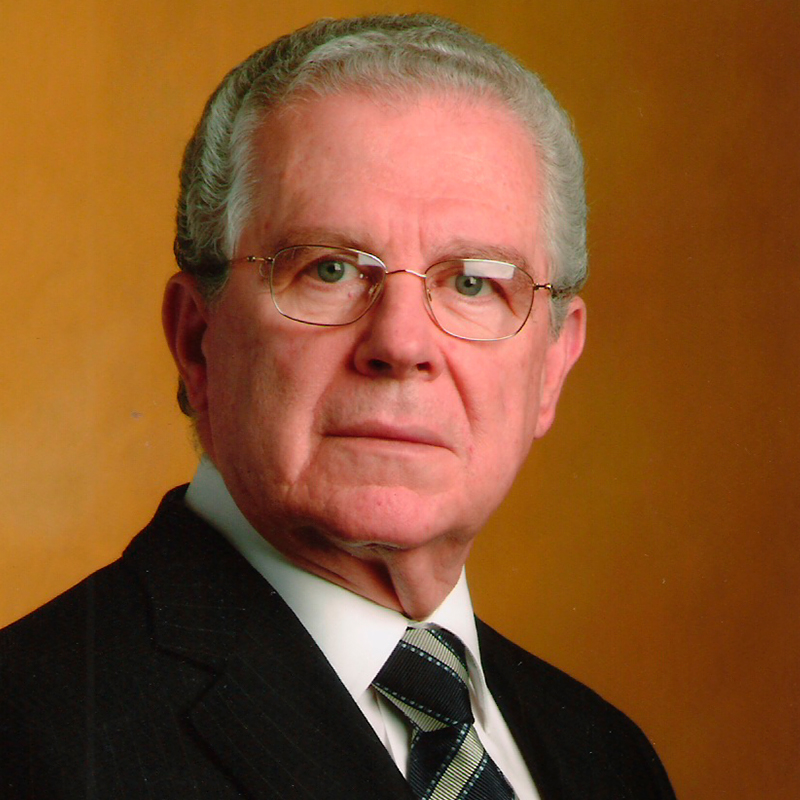
Sydney Sanches

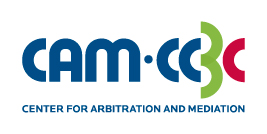
CAM-CCBC is the leading dispute resolution service provider in Brazil, founded almost 40 years ago. Accounting for over 50% of the Brazilian market, CAM-CCBC is focused on the administration of complex and large commercial disputes. The institution has a highly qualifi ed technical staff, performing on internal procedures certifi ed by ISO 9001:2015, as well is a signatory of cooperation agreements with 16 arbitral institutions worldwide.
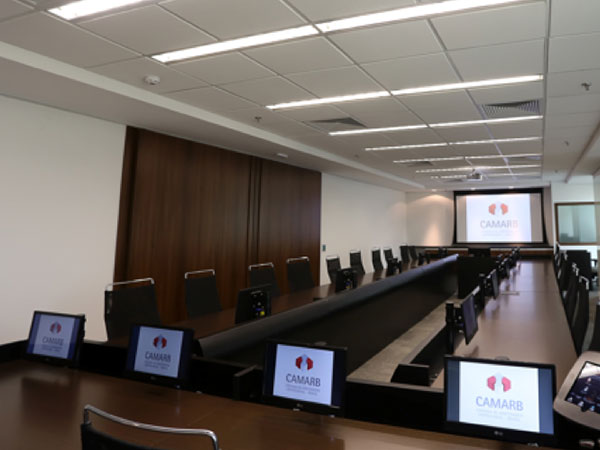

CAMARB is among Brazil’s leading institutions for commercial dispute resolution. Renowned by the effi ciency of its multilingual secretariat and the experience of its roster of neutrals, it provides flexible and impartial management of complex arbitration, mediation and DRB either on its up-to date hearing center or anywhere the parties may need.


Amcham Brazil is the largest chamber of commerce in the country with 5,000 corporate members. Its Arbitration Center has administered over 100 disputes covering several areas of law. Its structure comprises an Advisory Board, a Secretariat and facilities for hosting hearings in 14 cities where Amcham Brazil has its chapters, including São Paulo.
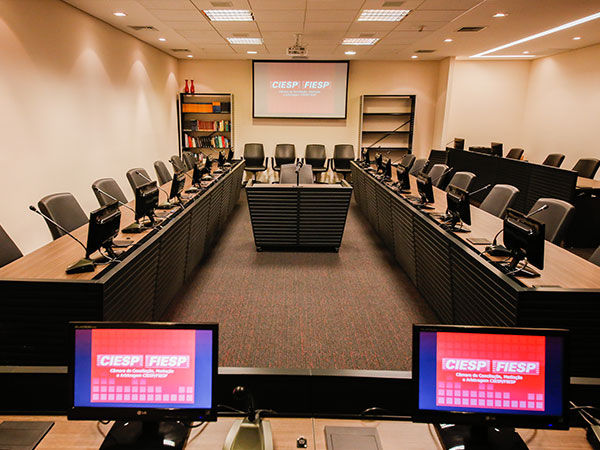

For over 20 years, the Ciesp/Fiesp Chamber of Conciliation, Mediation and Arbitration has been a leading player in the dispute resolution market. Established by the Center and the Federation of Industries of the State of São Paulo (Ciesp/Fiesp), the Chamber has been autonomously managed, being currently presided by former Supreme Court Justices Mr. Sydney Sanches and Mrs. Ellen Gracie.


CAM-CCBC is the leading dispute resolution service provider in Brazil, founded almost 40 years ago. Accounting for over 50% of the Brazilian market, CAM-CCBC is focused on the administration of complex and large commercial disputes. The institution has a highly qualifi ed technical staff, performing on internal procedures certifi ed by ISO 9001:2015, as well is a signatory of cooperation agreements with 16 arbitral institutions worldwide.

CAMARB is among Brazil’s leading institutions for commercial dispute resolution. Renowned by the effi ciency of its multilingual secretariat and the experience of its roster of neutrals, it provides flexible and impartial management of complex arbitration, mediation and DRB either on its up-to date hearing center or anywhere the parties may need.



Amcham Brazil is the largest chamber of commerce in the country with 5,000 corporate members. Its Arbitration Center has administered over 100 disputes covering several areas of law. Its structure comprises an Advisory Board, a Secretariat and facilities for hosting hearings in 14 cities where Amcham Brazil has its chapters, including São Paulo.

For over 20 years, the Ciesp/Fiesp Chamber of Conciliation, Mediation and Arbitration has been a leading player in the dispute resolution market. Established by the Center and the Federation of Industries of the State of São Paulo (Ciesp/Fiesp), the Chamber has been autonomously managed, being currently presided by former Supreme Court Justices Mr. Sydney Sanches and Mrs. Ellen Gracie.

Created and developed by CAM-CCBC – Center for Arbitration and Mediation in collaboration with AMCHAM Brasil, CAMARB and CIESP/FIESP.






